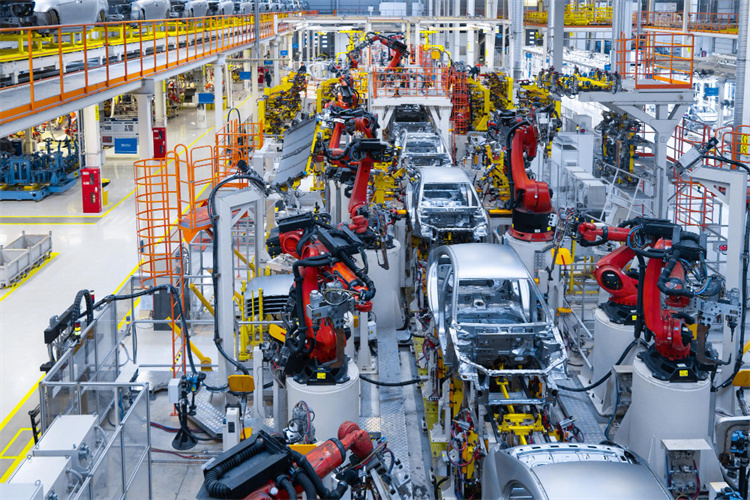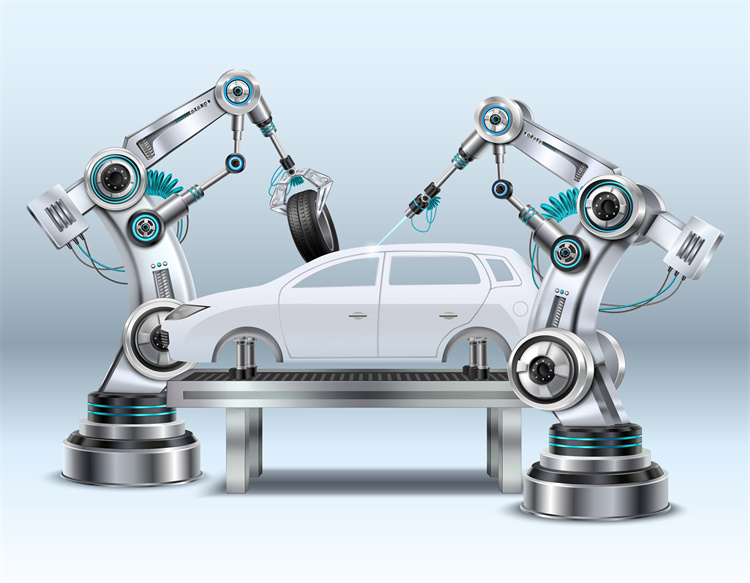Strategic Supply Chain Moves by Japanese Automakers in India

The Indian automotive market has emerged as a significant player on the global stage, surpassing Japan in automotive sales with 4.25 million units in 2022. This growth highlights the importance of effective supply chain strategies for automakers operating in this dynamic environment. Japanese automakers, such as Suzuki and Honda, have established a strong presence in India. Maruti Suzuki dominates with a 42% market share, reflecting successful integration of Japanese innovation with local practices. Japanese component makers like Bridgestone Corporation actively contribute to enhancing the productivity of the Indian automotive cluster.
Overview of the Indian Automotive Market
Market Potential and Growth
Economic factors driving growth
India's automotive market has experienced significant growth due to several economic factors. A rising middle class with increased purchasing power has fueled demand for vehicles. Urbanization trends have led to a surge in car ownership. Government initiatives, such as the "Make in India" campaign, have encouraged investment in manufacturing. These factors have collectively boosted the automotive sector's expansion.
Consumer demand trends
Consumer preferences in India have shifted towards compact and fuel-efficient vehicles. The popularity of electric vehicles (EVs) is also on the rise. Automakers are responding by introducing models that cater to these demands. The integration of advanced technology in vehicles has become a key selling point. Consumers seek features like connectivity and safety enhancements, driving innovation in the industry.
Challenges in the Indian Market
Infrastructure and logistics issues
Infrastructure challenges pose significant hurdles for the automotive supply chain in India. Poor road conditions and inadequate transport facilities affect distribution efficiency. Logistics costs remain high, impacting overall profitability. Automakers must navigate these obstacles to maintain smooth operations. Investment in infrastructure development is crucial for future growth.
Regulatory environment
The regulatory landscape in India presents both challenges and opportunities for automakers. Compliance with emission norms and safety standards requires adaptation. Frequent policy changes can create uncertainty for manufacturers. However, supportive policies can enhance the supply chain's resilience. Collaboration between industry stakeholders and the government is essential to address regulatory complexities.
Japanese Automakers' Strategic Moves in Supply Chain

Localization of Production
Establishment of Manufacturing Plants
Japanese automakers have made significant investments in establishing manufacturing plants in India. Suzuki, a major player, has developed extensive facilities that enhance production capabilities. These plants allow for efficient assembly and distribution of vehicles within the Indian market. The strategic location of these facilities reduces transportation costs and improves supply chain efficiency. Local manufacturing supports the "Make in India" initiative, boosting economic growth.
Sourcing Local Components
Japanese companies prioritize sourcing local components to strengthen their supply chain. This approach reduces dependency on imports and minimizes lead times. Local suppliers benefit from increased demand, leading to job creation and skill development. Bridgestone Corporation exemplifies this strategy by investing in local production of tires. The integration of local components enhances the competitiveness of Japanese automakers in India.
Partnerships and Collaborations
Joint Ventures with Indian Companies
Joint ventures with Indian firms form a cornerstone of Japanese automakers' supply chain strategies. These partnerships facilitate technology transfer and knowledge sharing. Maruti Suzuki's collaboration with Indian partners has led to innovative manufacturing practices. Such alliances enable the adaptation of Japanese innovation to local market needs. Joint ventures also foster mutual growth and strengthen industry ties.
Strategic Alliances for Technology Sharing
Strategic alliances focus on technology sharing to enhance supply chain efficiency. Japanese automakers collaborate with Indian IT companies to integrate advanced technologies. These partnerships drive innovation in vehicle connectivity and safety features. Pioneer, a Japanese company, seeks alliances with Indian automakers to expand its technological footprint. Technology sharing accelerates the adoption of cutting-edge solutions in the automotive sector.
Impact on the Indian Automotive Industry
Economic Contributions
Job Creation and Skill Development
Japanese automakers have significantly contributed to job creation in India. Establishing manufacturing plants has generated numerous employment opportunities. Local workers have gained valuable skills through training programs. These initiatives have enhanced the workforce's capabilities. The automotive sector has become a vital source of livelihood for many families.
Investment in Local Economies
Japanese automakers have made substantial investments in local economies. Manufacturing facilities have stimulated economic growth in surrounding areas. Local businesses have benefited from increased demand for goods and services. Infrastructure development has improved due to these investments. The presence of Japanese companies has strengthened local economies.
Technological Advancements
Introduction of New Technologies
Japanese automakers have introduced advanced technologies to the Indian market. The integration of cutting-edge features has improved vehicle performance. Consumers have access to innovative safety and connectivity options. The introduction of electric vehicles (EVs) has promoted sustainable transportation. These advancements have positioned India as a hub for automotive innovation.
Influence on Local Suppliers
Japanese automakers have positively influenced local suppliers. Collaborations with Indian firms have led to technology transfer. Local suppliers have adopted advanced manufacturing practices. The quality of locally produced components has improved significantly. Japanese companies have fostered a culture of continuous improvement among suppliers. This influence has strengthened the entire supply chain ecosystem.
Global Implications of Supply Chain Strategies
Influence on Global Supply Chains
Diversification of Supply Sources
Japanese automakers in India demonstrate the importance of diversifying supply sources. This strategy reduces reliance on single markets and enhances flexibility. Companies can respond more effectively to global disruptions. Diversification supports a more resilient supply chain. The approach aligns with ethical practices by promoting local economies and reducing environmental impact.
Risk Management and Resilience
Effective risk management strengthens supply chain resilience. Japanese automakers employ just-in-time manufacturing to minimize waste. Lean production techniques optimize resource use and reduce costs. These methods enhance the ability to withstand market fluctuations. A robust supply chain ensures consistent product availability and quality. Ethical considerations guide these strategies, emphasizing corporate social responsibility.
Lessons for Other Automakers
Best Practices in Supply Chain Management
Japanese automakers offer valuable lessons in supply chain management. Localization of production reduces transportation costs and improves efficiency. Partnerships with local suppliers foster innovation and competitiveness. These practices contribute to sustainable growth and economic development. Automakers worldwide can adopt similar strategies for success.
Adaptation to Emerging Markets
Adaptation to emerging markets requires understanding local consumer needs. Japanese automakers excel in tailoring products to specific market demands. Collaboration with local firms facilitates technology transfer and cultural integration. This approach enhances market penetration and brand loyalty. Automakers can learn from these strategies to expand globally.
Japanese automakers have implemented strategic supply chain moves in India. These include localization of production, partnerships with local firms, and the integration of advanced technologies. These strategies enhance efficiency and competitiveness in the Indian automotive industry. The future of the industry looks promising with increased job creation and technological advancements. Globally, these moves contribute to diversified supply chains and improved risk management. Advanced tools and AI will further transform supply chain operations, ensuring ethical standards and continuous improvement. This approach sets a benchmark for other automakers worldwide.
See Also
Unlocking the Power of Your Automotive Supply Chain
Artificial Intelligence in Supply Chain: Transforming Future Logistics
Mastering Automotive Supply Chain Hurdles: Expert Advice
Harnessing Data for Better Decisions: Enhancing Automotive Demand Forecasting
Efficient Strategies for Addressing High-Tech Manufacturing Supply Chain Challenges
